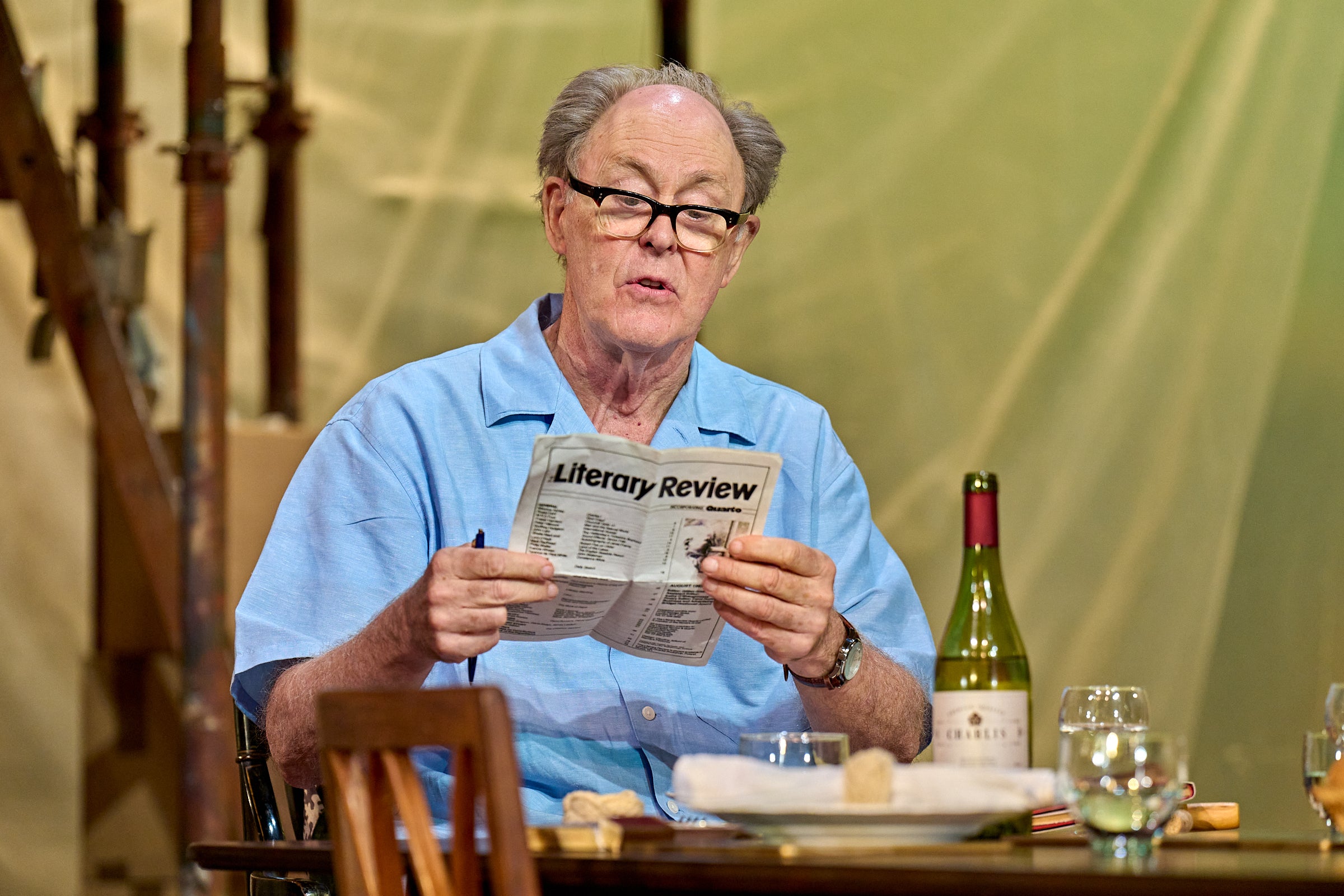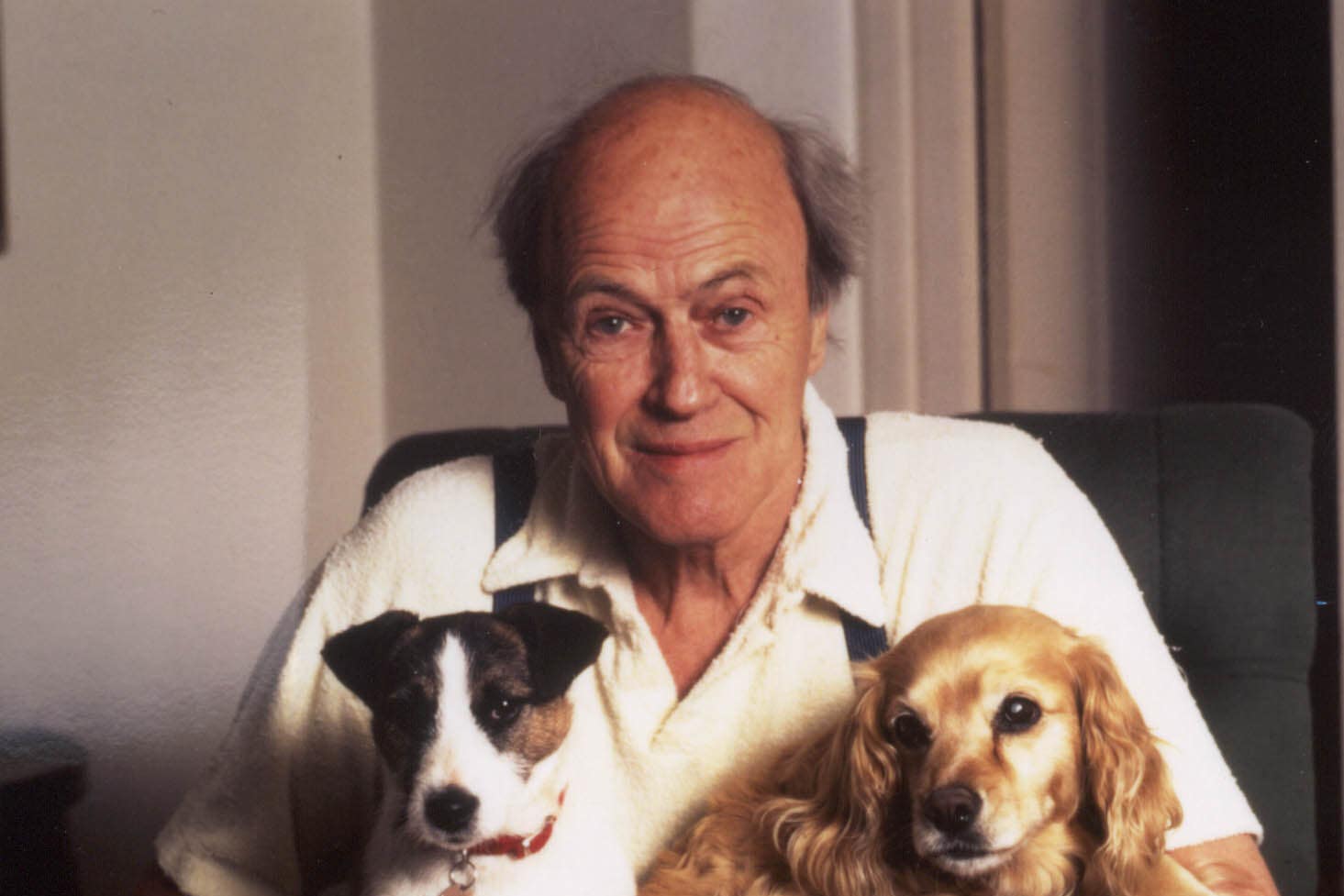John Lithgow says Roald Dahl was ‘a very complicated man damaged by terrible tragedies’
Actor stars as the controversial author in the play ‘Giant’, which explores Dahl’s antisemitic statements
Actor John Lithgow has reflected on Roald Dahl’s “complicated” legacy, as he stars as the late author in the West End play Giant.
Lithgow, 79, portrays the children’s writer during a period in his life when he was about to publish his book The Witches, and amid the fallout from a book review he wrote condemning Israel’s invasion of Lebanon in 1982, which included a number of antisemitic remarks.
Reviews of the play, in particular Lithgow’s performance, have been glowing, with an Evening Standard critic calling the “shocking, challenging” play “spectacularly good”. The Independent’s critic called it a “simmering, tense study” of the author and antisemitism with a “towering turn” from Lithgow.
Director Nicholas Hytner told The Sunday Times that he knew Lithgow had to play Dahl because “even though he is the sweetest man, he does have the most extraordinary talent for playing monstrous characters”.
The actor is known for a number of memorable villain roles, including the voice of the ruthless Lord Farquaad in animated movie Shrek, disgraced Fox News head Roger Ailes in Bombshell, and as a child psychologist who himself suffers a mental collapse in Raising Cain.
“Dahl wasn’t a monster covered by scales – he was a very complicated man damaged by terrible tragedies,” Lithgow told The Sunday Times.
“Everything that was humane and compassionate about Dahl had to be in the play, along with the vitriol and cruelty, and you can see all that in his stories too.”

Speaking to The Independent about the role last year, Lithgow explained that what fascinated him in particular about Dahl was the “origins of that hatred… I think so much of that comes from injury, from damage.”
“He was a charmer and a wit, but he had a vile temper and he could be horrible to people,” he continued. “And he had a deeply emotional side. He endured awful grief when one of his children was badly injured and another passed away.”
Lithgow also noted the added public interest in the themes explored in Giant, as it opened not long after the 7 October attack by Hamas in 2023: “The impact on the audience has enormously deepened for some very simple reasons,” he told The Independent.
“Because of what’s happened in the last year, people are better educated about Israel’s history and the conflict with the Palestinians. October 7 was one appalling event but then there was the devastation in Gaza.”
Giant, he explained, “is all about the invasion of Lebanon in 1982 and Dahl’s critique of that a year later. Suddenly everybody knows the immediate history and has learned an awful lot about 40 years ago. It’s just quickened everybody’s attention.”
Dahl’s family apologised in 2020 for his antisemitic comments, acknowledging the “lasting and understandable hurt” caused by some of his statements.

The author behind some of the world’s most popular children’s books, including Matilda and Charlie and the Chocolate Factory, died aged 74 in 1990.
Years earlier, he infamously said during an interview with the New Statesman: “There is a trait in the Jewish character that does provoke animosity, maybe it’s a kind of lack of generosity towards non-Jews.
“I mean, there’s always a reason why anti-anything crops up anywhere,” he continued. “Even a stinker like Hitler didn’t just pick on them for no reason.”
In an interview with The Independent just months before his death, Dahl said: “I’m certainly anti-Israel and I’ve become antisemitic inasmuch as that you get a Jewish person in another country like England strongly supporting Zionism.”
Dahl’s family said in 2020: “Those prejudiced remarks are incomprehensible to us and stand in marked contrast to the man we knew and to the values at the heart of Roald Dahl’s stories, which have positively impacted young people for generations,” the family said.
“We hope that, just as he did at his best, at his absolute worst, Roald Dahl can help remind us of the lasting impact of words.”
Giant is at the Harold Pinter Theatre in London until 2 August.